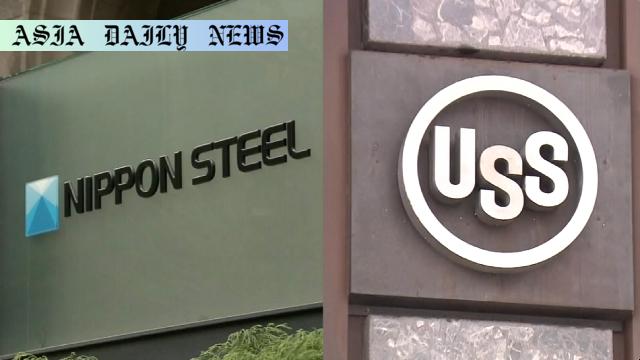CFIUS debates Nippon Steel’s proposed takeover of US Steel, recommending mitigations for national security risks for Trump’s decision.
Key Point 1: CFIUS assesses $14B Nippon Steel’s bid for US Steel over national security.
Key Point 2: Members reportedly not unanimous, majority sees security issues manageable.
Key Point 3: US Steel union opposes the deal, citing risks for workers and the industry.
Key Point 4: Trump has until June 5 to decide, previous rejection highlighted security risks.

CFIUS and the $14 Billion Nippon Steel Bid
The Committee on Foreign Investment in the United States (CFIUS) has presented its findings on Nippon Steel’s proposed $14 billion acquisition of US Steel. This offer has sparked both interest and controversy, driven by potential security and national economic implications. As of now, the decision lies with President Trump, who holds the authority to approve or veto the deal by the stipulated deadline of June 5. Recent analysis by CFIUS portrays a complex situation, with only a majority alignment from its members over the viability of risk mitigation strategies. Though not unanimous, the sentiment within the committee suggests that certain national security concerns could be mitigated effectively through predefined measures.
National Security Concerns and Economic Impact
The backdrop of this acquisition lies in a climate of apprehension over national security, economic self-sustainability, and the future of the American manufacturing sector. President Trump had previously rejected a similar acquisition attempt by Nippon Steel, citing threats to national security. In contrast, his current tone toward the new review appears cautiously optimistic, contingent on credible reassurances that risks are effectively addressed. This underscores the sensitivity associated with foreign investments in key industries, especially in light of evolving trade dynamics and geopolitical considerations.
Union Opposition: A Critical Perspective
The United Steelworkers union has strongly opposed the deal, underscoring potential adverse outcomes for American workers and the industry at large. In their public statement, the union warned of catastrophic impacts on the national steel production supply chain, job securities, and broader manufacturing capabilities should this acquisition proceed. They called on Trump to firmly block the proposal, aligning with his previous stance. This adds yet another dimension to an already intricate decision-making process.
What Lies Ahead for Nippon Steel’s Proposal?
As President Trump assesses the future of one of the largest steel acquisition proposals in recent history, several pivotal factors must be considered: economic benefits, practical feasibility of risk mitigations suggested by CFIUS, and the broader ramifications on long-term national interests. While Nippon Steel has refrained from commenting on the panel’s report, their continued optimism for an affirmative response reflects confidence in current negotiations.
Conclusion
The next few weeks will be critical for Nippon Steel, US stakeholders, and policymakers as deliberations over this high-profile transaction unfold. With stakeholders such as labor unions actively lobbying against the deal and concerns over national security at the fore of discussions, Trump’s decision on this high-stakes matter will likely set a precedent for how similar acquisitions are handled in the future.



Commentary
A High-Stakes Decision Amid National Security Concerns
The ongoing discussions surrounding Nippon Steel’s $14 billion bid for US Steel illustrate the nuanced complexities of managing foreign investments in sectors deemed critical to national security. President Trump finds himself at the center of a polarizing debate. On one hand, welcoming foreign investment could breathe new life into the American manufacturing industry. On the other, ensuring that such investments do not compromise national interests remains critical.
Balancing Economic Gains Against Strategic Interests
From an economic perspective, an approved deal could provide an influx of resources, potentially strengthening both Nippon Steel and US Steel’s operational synergies. However, the apprehension raised by domestic stakeholders, including labor unions, serves as a stark reminder of the high stakes associated with such a transaction. Union voices often represent grassroots perspectives on industry stability, and their opposition should not be overlooked or underestimated.
Lessons for Policymakers
Beyond this specific deal, the situation sets a precedent for evolving policies regarding the influx of foreign capital in industries critical to American infrastructure. Strengthening the regulatory frameworks of bodies like CFIUS will be pivotal as these functions are increasingly tested in an era of heightened globalization. Transparency in addressing risks identified by regulatory bodies can also help address skepticism from concerned parties, such as unions and economic strategists.
A Momentous Decision for the Steel Industry
The final decision on Nippon Steel’s bid will not only reshape the narrative for the two companies involved but also reveal broader attitudes toward foreign investments in critical industries. Whether President Trump opts to block or approve this acquisition, his choice will resonate far beyond steel plants and boardrooms to influence economic and geopolitical strategies into the foreseeable future.